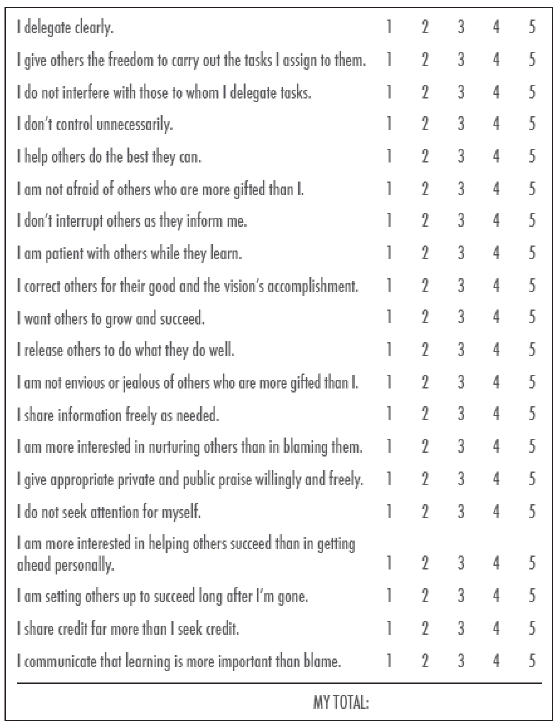6. Slave Leadership
Related Media
How we sculpt great leaders shows what we prize in them. As you stroll through the grass of any grand battlefield you meet the memories of generals who were daring, indomitable, and courageous. When you meander through piazzas in Europe you see the statues of kings and statesmen etched with resolve, passion, and determination. Whether it’s Winston Churchill standing undaunted or General Jackson mounted on his regal steed, we sculpt w
How we sculpt great leaders shows what we prize in them. As you stroll through the grass of any grand battlefield you meet the memories of generals who were daring, indomitable, and courageous. When you meander through piazzas in Europe you see the statues of kings and statesmen etched with resolve, passion, and determination. Whether it’s Winston Churchill standing undaunted or General Jackson mounted on his regal steed, we sculpt what we esteem.
Certainly leaders need to have resolve, passion, and courage. We follow leaders who tower in the midst of battles and forget those who cower in the storm. But do those traits define the essence of a great leader?
If you were to walk across a seminary courtyard in Dallas, Texas you would discover a very different statue. Like the others, it is handcrafted from precious materials. Like the others, an artist sculpted what he valued. However you will discover from the subject’s position a far different message.
He kneels on bended knees with nothing but a slave’s towel covering his waist. With head bowed, he is focused on a basin. His hands hold neither sword nor scepter, but a foot and a towel. Before Him you see the startled figure of Peter – tense, resistant, confused.
When Jesus wrapped Himself in the slave’s towel He changed the world and the way we should view leadership. In this session, we will see why Jesus’ position in John 13 is the essence of true leadership. Furthermore, we will see why the pictures we have in our minds of what a “slave-leader” looks like are all wrong. He will show us through Jesus’ actions in the upper room why slave-leadership looks nothing like the senior pastor serving coffee at the church dinner. By the end of this session, we believe you will begin sculpting a whole new statue of your leadership. We all want–to be the undaunted, passionate, and. determined leader but are we willing to join the Order of the Towel first?
Some of the greatest authority you will ever exercise
as a leader you will exercise on your knees –
and I am not talking about prayer.
Video
John 13:4-11
John 13:12-17
As a slave-leader you have five choices. You can become a:
- Slave to your followers
- Slave to your peers
- Slave to your leader
- Slave to yourself
- Slave to your Lord
Key Points:
There is only one way we become slave
leaders – through the Slave Leader.
- Leadership is not about power, success, or control; leadership is about humility, vulnerability, and release.
- The essence of leadership: bringing followers onto God’s agenda for their lives no matter what it costs.
- One of our chief responsibilities as slave-leaders is to call our followers away from sin.
Probing Deeper:
1. What struck you most about this final session? How do you understand the fact that “slave leadership is not about doing what our followers want us to do?”
2. We focused a great deal on bringing followers onto God’s agenda despite the costs that may be involved (marred reputations, negative remarks, friendships, social image). What cost is difficult for you to pay when you think about being a slave to your followers?
3. How do we as leaders isolate ourselves? How do we attempt to freeze people out when the cost gets too high to truly help them follow God’s agenda?
4. Of the five choices that Bill listed, which slave do you find yourself becoming: a slave to your followers, a slave to your peers, a slave to your leader, a slave to yourself, or a slave to your Lord?
5. As you look back over the previous five sessions, which principles has God used to chisel and craft your heart? What steps are you going to implement as a result of this insight into leader formation?
Transforming the Heart:
The statues of the world’s great leaders all exude a sense of power. Only the image of Jesus in John 13 reveals the essence of true Christian leadership. Of the three leader-destroyers – money, sex, and power – power seems to be the one that impacts Christian leaders the most. Money and sex take their toll, but power seduces even the most mature Christian leaders.
We wrestle with power because it gives us an identity. It makes us feel like we’re somebody, like we matter, like we’re – well, like we’re God. We decide who matters and who doesn’t, who moves up and who moves down, who stays and who goes. Many of these decisions have life-changing consequences and some may even be matters of life or death. But a distinction must be made between personal power and appropriate authority, often called social power. Social power, in contrast to personal power, is exercised for the good of the vision and the group rather than the good of the leader. The difference between the two lies in motives. The same action maybe right or wrong, constructive or destructive, depending on why it is done. Here are two key questions to help identify our motives:
- Am I acting to protect myself or build others?
- Am I acting in light of my interests or the vision’s demands?
At times our personal interests and the interests of the group overlap, but many leaders abuse power because they feel threatened by followers. This misuse of power undermines our accountability before God who entrusted us with this vision and purpose.
So are you a power player? One of the things power players do is take over for God by acting to form their followers in their image. Are you a god working to form yourself and your followers according to your image? Take the power test below. Then give it to some key people in your life: mate or roommate, mature children, your manager, a few of your peers, those who report to you.
A Power test:
Five (5) is the highest number on this scale and one (1) is the lowest.

- Now ask this: What is the one question about my power addiction that is not on this evaluation?
Nobody’s perfect, of course, but score much less than 90 on this scale and you need to note the critical areas. Anything under 80 may well indicate that you are seriously power driven. If you realize you have stepped into God’s formative role, you need to resign as God because you—like the rest of us—are not very good at that. Sign the letter below and give up trying to be God. Otherwise the best you can do is fail and the worst you will do is destroy others. So here’s what I suggest.Write the letter you see on this page. Date it, sign it, and keep it where you will see it frequently, say on your desk or in your Bible. Review it regularly so you make sure that God (and not you!) is God in your life and that you are becoming who He wants you to be.

Renewing the Mind:
This is my commandment, that you love one another as I have loved you. Greater love has no one than this that someone lays down his life for his friends.
– John 15:12-13
Related Topics: Discipleship, Issues in Church Leadership/Ministry, Leadership

